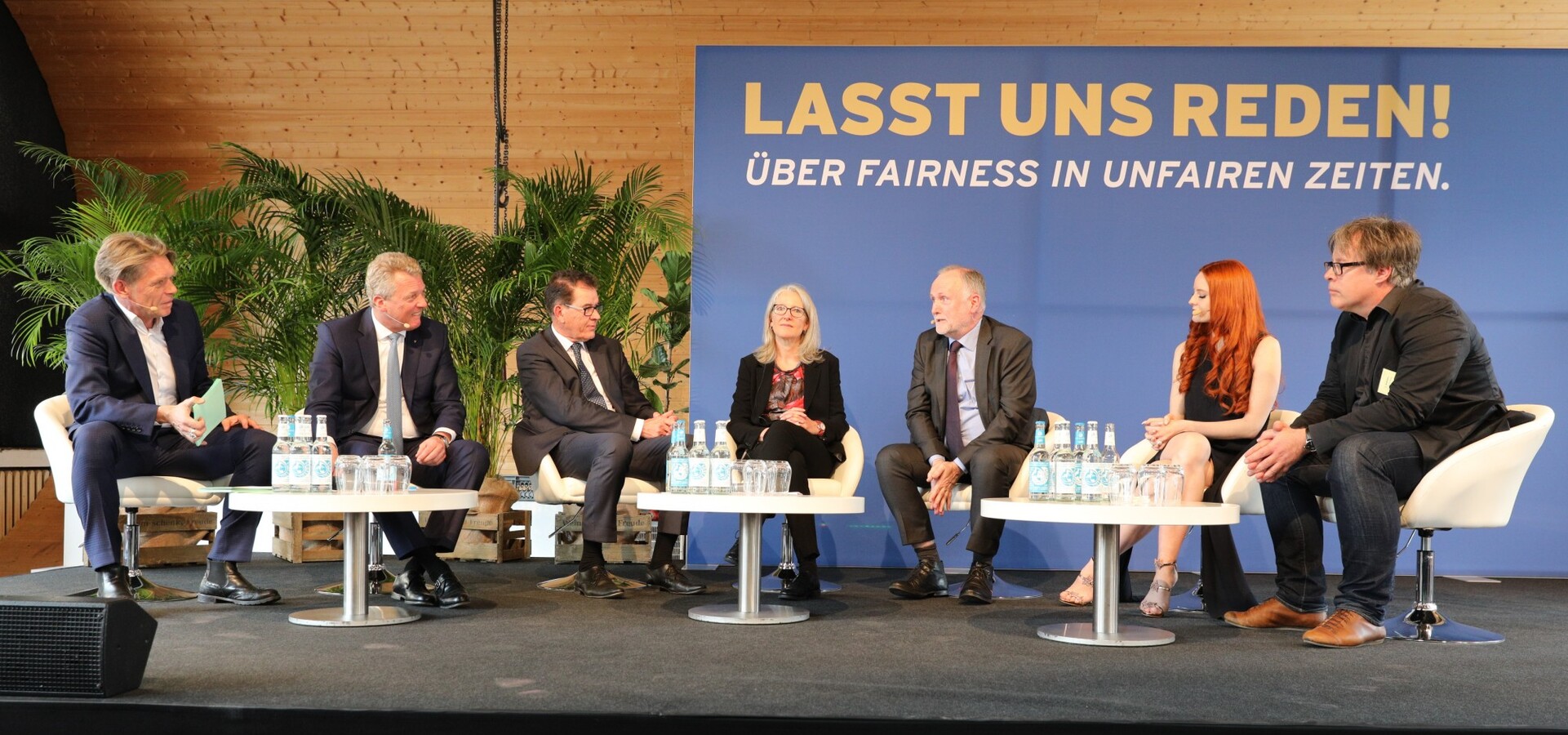It’s time to stop talking and start taking action – working together for the benefit of all: policymakers, business leaders and society as a whole. Each and every one of us must act, regardless of who is ultimately responsible.
Within the sectors we operate in, we are often confronted with systemic challenges such as low wages, poor working conditions and a lack of safety in the workplace. These challenges are the flip side of the international division of labour. If we want to achieve any kind of meaningful change, we need allies and we need clear legislation. For, although a few companies have already taken important steps in this direction of their own accord, this is still nowhere near enough.
A delicate balance of legal obligations, individual responsibility and collaboration is absolutely vital if we are to make the progress that is so urgently needed.
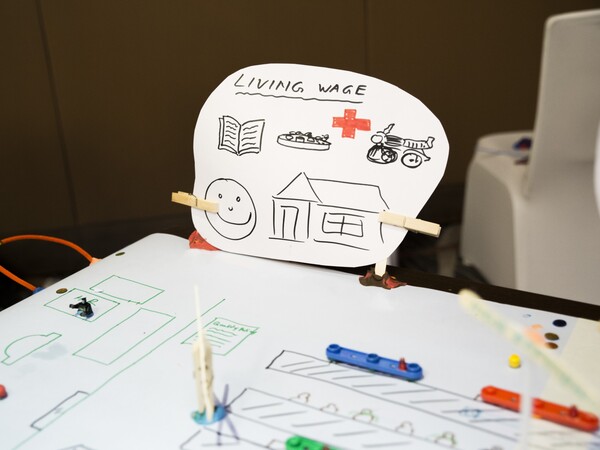
We need legislation – and it is vital that this is done at European level too.
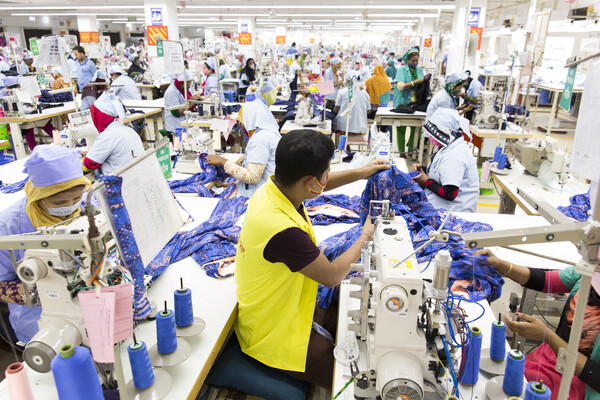
We very much welcome the adoption of the Supply Chain Due Diligence Law by the German Parliament (Bundestag) in June 2021. We see great opportunities for people and companies in global supply chains, because the relevant market participants will be subject to the same standards for corporate responsibility from 2023. Individual burdens of corporate responsibility compliance will now be more evenly distributed, while at the same time systemic progress in producing countries can be advanced.
We look forward to the discussions and decisions for an EU-wide supply chain directive in coherence with the other projects under the umbrella of the European Green Deal. We see the opportunity that legalisation and standardisation for all companies operating in the EU market can lead to considerable progress towards more efficiency in supply chains and to relieving synergy effects for companies. Our substantive positions for the design of the German law also apply to the EU directive.
We aren’t going to sit back and wait for laws to be passed before we take action. We have developed our strategy and our policies in a way that ensures we do what we can within our own sphere of influence. Whenever we reach the limits of what we can achieve, we look for opportunities to collaborate with others in order to make progress and effect lasting change.
International cooperation for a fairer world
Long-term cooperation based on equal partnership has been shown to have benefits at both factory and farm level. Nevertheless, there is clearly a limit to the impact that individual supply chain programmes can have. We have been working closely with politicians, businesses, non-governmental organisations and trade unions in Germany and our purchasing markets for many years, with the common aim of improving working conditions for people in those countries where our products are produced. We have co-founded numerous industry and multi-stakeholder initiatives such as Germany’s Partnership for Sustainable Textiles, International Accord on Health and Safety and ACT on Living Wages in the clothing sector, as well as the coffee&climate initiative in the coffee sector.
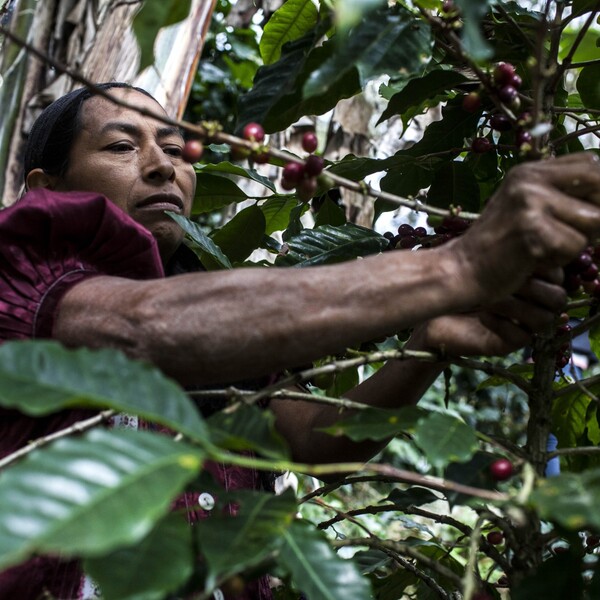
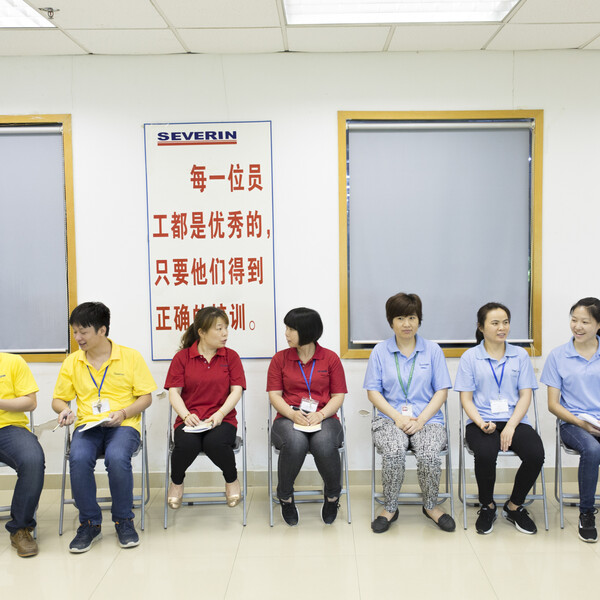
Legislation to protect human rights
In 2006, we began the process of transforming the company into a socially and ecologically sustainable enterprise, motivated by our conviction that businesses must not operate at the expense of people and the environment. Yet we also believe that responsible and sustainable business practices are not optional but an absolute necessity. Everyone must play their part if we are to safeguard human rights and protect the environment on a global scale. When we first began more than 14 years ago, we believed this could be achieved without enacting new laws. Today, the sheer urgency of the issues at hand tells us that we desperately need binding legislation.
